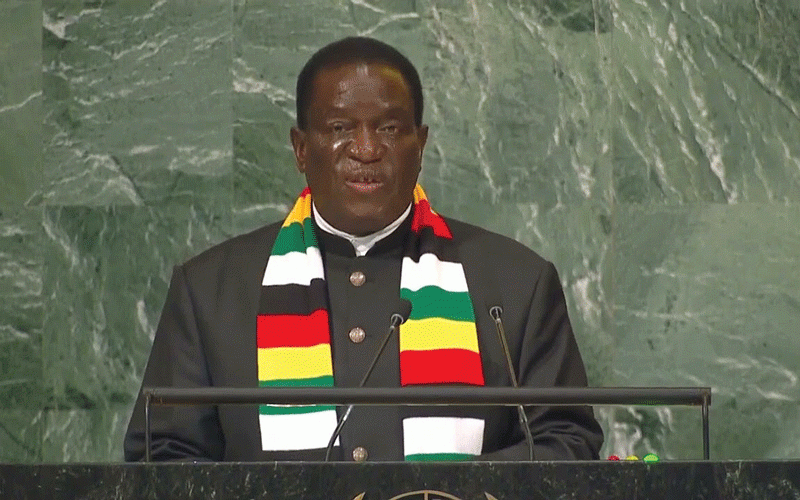
THE latest row over patronage and opaque procurement in the government shows the widening rift between President Emmerson Mnangagwa and his deputy Constantino Chiwenga, and their attempts to favour their own supporters.
The day after Mnangagwa left Zimbabwe on May 4 to attend King Charles III's coronation in London, a government notice was issued, declaring that procurement of some items “of national interest” would no longer be disclosed.
These include construction equipment and materials, medical equipment, drugs, chemicals, laboratory equipment, hospital PPE, ambulances, and accessories needed for maintenance of medical or hospital equipment. The notice, said Information secretary Ndavaningi Mangwana, would enable hospitals to obtain urgent supplies without drawn out procurement processes. The Bill was lambasted on social media for promoting corruption.
Upon Mnangagwa’s return, the notice was rescinded. Mnangagwa's spokesman George Charamba said the President had not known about the notice and was angry that it had been published. Chief Secretary to the President and Cabinet Misheck Sibanda, added that the document was not official as Mnangagwa hadn't signed it.
But for others the row is another turf battle between Mnangagwa and his deputy Chiwenga, who is also Health minister. The notice benefited State bodies buying medical equipment or supplies, mostly coming under the Health ministry and the parastatal NatPharm, led by retired Air Commodore Ivan Gibson Dumba. It was published by the Health permanent secretary, Air Commodore (Rtd) Jasper Chimedza. Unaudited spending on health equipment would benefit former military comrades of Chiwenga.
It also fits a pattern of government spending on extravagant projects and equipment. On May 18, Sergey Chemezov, director-general of Rostec, the Russian State corporation that specialises in military technology and aviation, flew to Harare to hand over 18 helicopters to Mnangagwa — 12 air ambulances and six for law enforcement. State media reports that another 14 will be delivered by the end of 2024.
Zimbabwe is paying US$320 million or US$10m per helicopter — for the Kazan Ansat model, which should not cost more than about US$2,5m each. Rostec is under sanctions by the United States, the European Union, Britain, Canada, Australia, New Zealand and Switzerland — as Mnangagwa and some of his senior officials. Russia's ambassador to Zimbabwe, Nikolai Krasilnikov, and Mnangagwa argue that sanctioned countries must support each other.
That, and the ensuing financial benefits, may inform Mnangagwa's other dealings with sanctioned States.
- Big send-off for Cont Mhlanga
- Massive ZRP vehicle theft scam exposed
- Zanu PF bigwigs face axe in purge
- Village Rhapsody: Health workers’ grievances need permanent solution
Keep Reading
In June 2022, the Local Government ministry told Zimbabwe's local councils that the government had purchased fire engines on their behalf from Belarus — one per rural, two per urban and three per metropolitan authority. The payment would be deducted from the councils' devolution allocations and each vehicle would cost US$464 296 — 15 times the estimated value of US$30 000. Parliament has no record of an agreement with Belarus to provide fire equipment. Local Government minister July Moyo has declined to answer questions about the matter.
Zimbabwe has also agreed to buy US$66m worth of tractors and agricultural equipment from Belarus for the farm mechanisation programme again without discussion in Parliament. Farmers, who met with Agriculture minister Anxious Masuka, say the tractors have not been delivered to them. They suspect that corrupt officials have taken the tractors for themselves.
Relations between top officials in the ruling Zanu PF and Putin’s ally, Belarusian President Alexander Lukashenko, are warming. After Belarus opened its embassy in Harare in 2019, Mnangagwa visited Minsk. This year Lukashenko has visited Zimbabwe while First Lady Auxillia Mnangagwa was welcomed in Minsk with her sons, businessmen Collins and Sean. Lukashenko's ally, Viktor Sheiman, along with his son, Sergei Sheiman and former honorary consul to Zimbabwe Alexander Zingman are involved in opaque gold deals in Zimbabwe.
Zimbabwe has also bought a presidential plane. Criticised for hiring private jets for short local trips, to Gweru (280km from Harare) and Bulawayo (440km from Harare), Mnangagwa has bought a Dassault Falcon 7X, registered as P4-SIM, which cost some $54m. This purchase was not included in the national budget nor subjected to parliamentary scrutiny.
Another pillar of government accountability has gone. Mildred Chiri, the respected investigator has resigned as Auditor-General after 19 years in the post. Her recommendations were largely ignored by the regime, but she was a voice of honesty and stability in the system.







